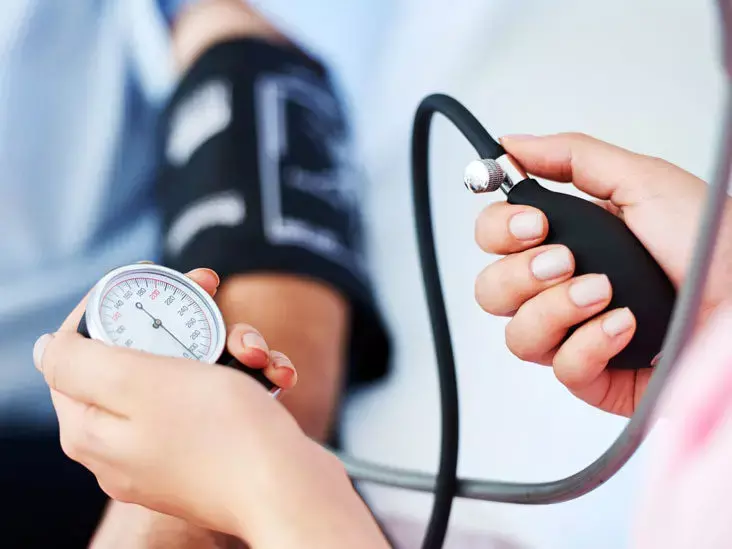- Home
- Medical news & Guidelines
- Anesthesiology
- Cardiology and CTVS
- Critical Care
- Dentistry
- Dermatology
- Diabetes and Endocrinology
- ENT
- Gastroenterology
- Medicine
- Nephrology
- Neurology
- Obstretics-Gynaecology
- Oncology
- Ophthalmology
- Orthopaedics
- Pediatrics-Neonatology
- Psychiatry
- Pulmonology
- Radiology
- Surgery
- Urology
- Laboratory Medicine
- Diet
- Nursing
- Paramedical
- Physiotherapy
- Health news
- Fact Check
- Bone Health Fact Check
- Brain Health Fact Check
- Cancer Related Fact Check
- Child Care Fact Check
- Dental and oral health fact check
- Diabetes and metabolic health fact check
- Diet and Nutrition Fact Check
- Eye and ENT Care Fact Check
- Fitness fact check
- Gut health fact check
- Heart health fact check
- Kidney health fact check
- Medical education fact check
- Men's health fact check
- Respiratory fact check
- Skin and hair care fact check
- Vaccine and Immunization fact check
- Women's health fact check
- AYUSH
- State News
- Andaman and Nicobar Islands
- Andhra Pradesh
- Arunachal Pradesh
- Assam
- Bihar
- Chandigarh
- Chattisgarh
- Dadra and Nagar Haveli
- Daman and Diu
- Delhi
- Goa
- Gujarat
- Haryana
- Himachal Pradesh
- Jammu & Kashmir
- Jharkhand
- Karnataka
- Kerala
- Ladakh
- Lakshadweep
- Madhya Pradesh
- Maharashtra
- Manipur
- Meghalaya
- Mizoram
- Nagaland
- Odisha
- Puducherry
- Punjab
- Rajasthan
- Sikkim
- Tamil Nadu
- Telangana
- Tripura
- Uttar Pradesh
- Uttrakhand
- West Bengal
- Medical Education
- Industry
Intensive BP treatment benefits elderly hypertensives with life expectancy more than 3 years: JAMA

Intensive BP treatment is effective for some adults with hypertension aged 60 years and older, finds a new study appearing in JAMA.
Recent guidelines recommend a systolic blood pressure (BP) goal of less than 150 mm Hg or even 130 mm Hg for 60 years or older adults. However, harms from intensive BP treatments occur immediately (eg, syncope, fall), and benefits for cardiovascular event reduction emerge over time. Therefore, harms with low chance of benefit need to be clearer, particularly for those with limited life expectancy.
A study was conducted to estimate the time needed to potentially derive clinical benefit from intensive BP treatment in patients 60 years and older.
This secondary analysis included individual patient data from published randomized clinical trials with 27 414 patients 60 years or older with hypertension. Patient-level survival data were reconstructed when the original data were not available. Published trials were identified by searching PubMed until October 15, 2021.Intensive BP lowering vs standard BP lowering with the treat-to-target design.Major adverse cardiovascular event (MACE) defined by each trial, which was broadly similar to all trials, including myocardial infarction, stroke, and cardiovascular mortality.
The results of the study are:
- The analysis included six trials (original data from 2 trials and reconstructed data from 4 trials) with 27 414 participants (mean age, 70 years; 56.3% were women). Intensive BP treatment with a systolic BP target below 140 mm Hg was significantly associated with a 21% reduction in MACE
- On average, 9.1 months were needed to prevent 1 MACE per 500 patients with the intensive BP treatment
- Likewise, 19.1 and 34.4 months were estimated to avoid 1 MACE per 200 and 100 patients.
Thus, in this analysis, findings suggest that for patients 60 years and older with hypertension, intensive BP treatment may be appropriate for some adults with a life expectancy of greater than 3 years but may not be suitable for those with less than 1 year.
Reference:
Time to Clinical Benefit of Intensive Blood Pressure Lowering in Patients 60 Years and Older With Hypertension: A Secondary Analysis of Randomized Clinical Trials by Tao Chen, et al. published in the JAMA Internal Medicine.
Dr. Shravani Dali has completed her BDS from Pravara institute of medical sciences, loni. Following which she extensively worked in the healthcare sector for 2+ years. She has been actively involved in writing blogs in field of health and wellness. Currently she is pursuing her Masters of public health-health administration from Tata institute of social sciences. She can be contacted at editorial@medicaldialogues.in.
Dr Kamal Kant Kohli-MBBS, DTCD- a chest specialist with more than 30 years of practice and a flair for writing clinical articles, Dr Kamal Kant Kohli joined Medical Dialogues as a Chief Editor of Medical News. Besides writing articles, as an editor, he proofreads and verifies all the medical content published on Medical Dialogues including those coming from journals, studies,medical conferences,guidelines etc. Email: drkohli@medicaldialogues.in. Contact no. 011-43720751


